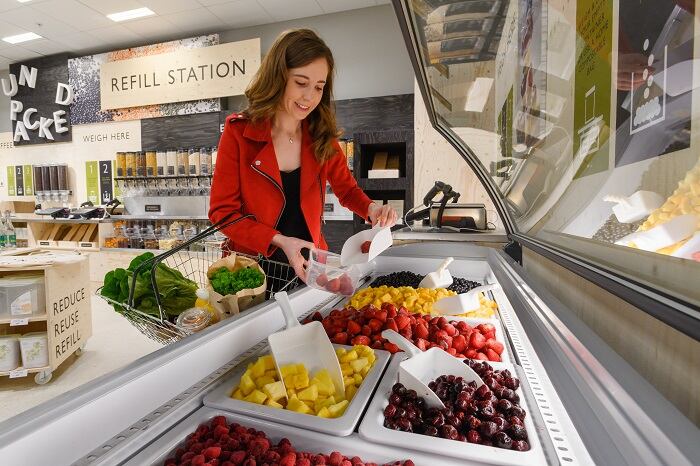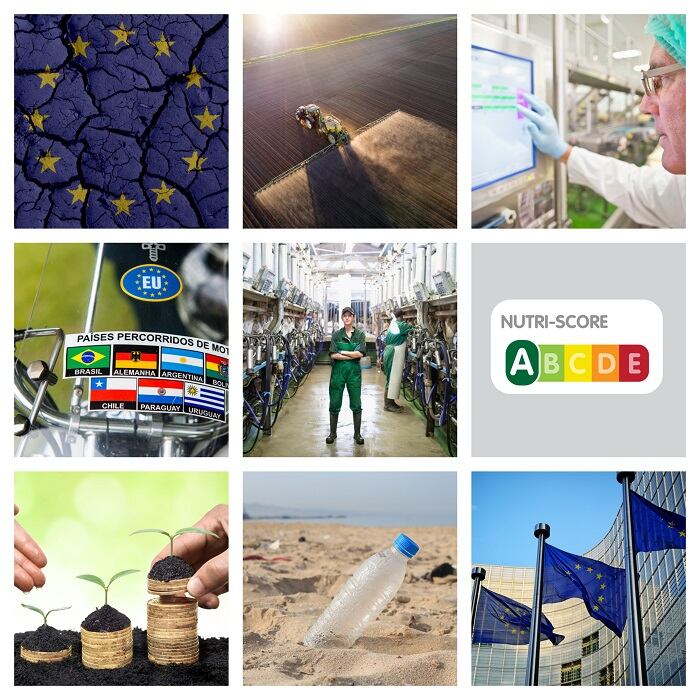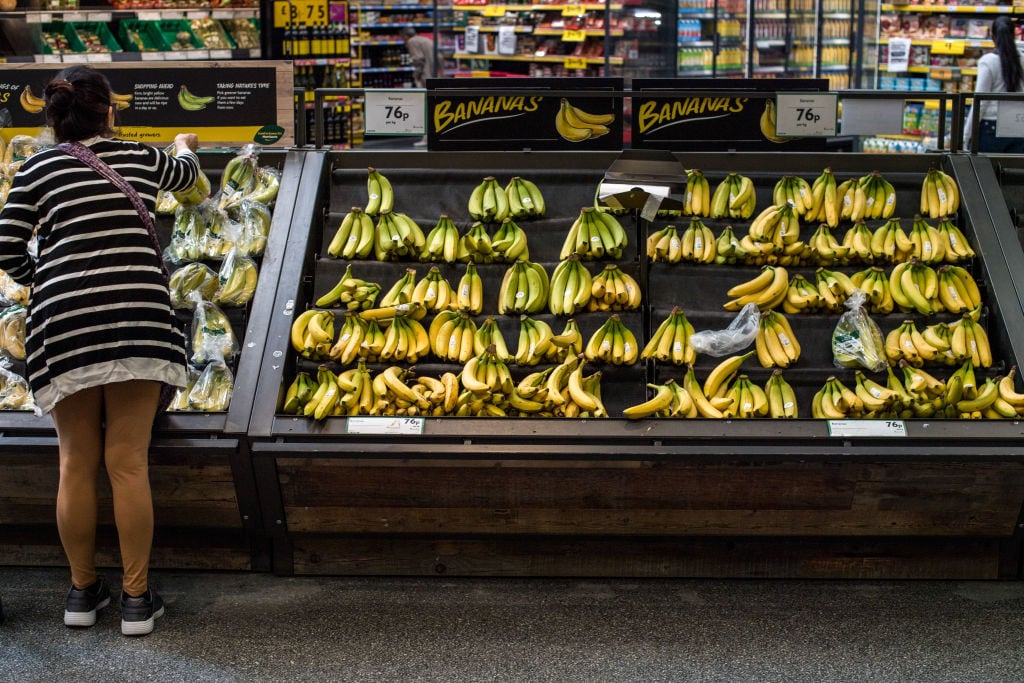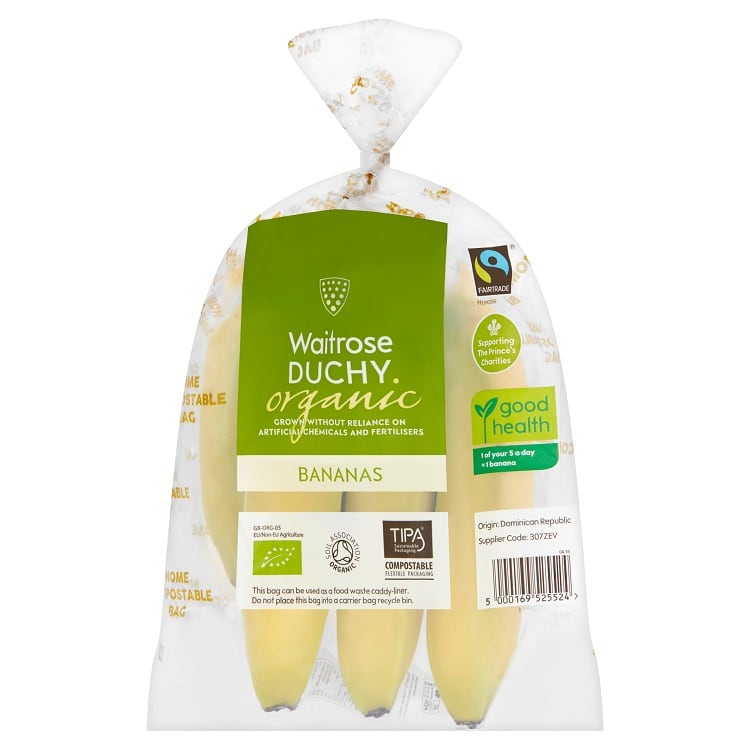Plastic pollution campaigners have generally welcomed the move by UK supermarket Waitrose to introduce a host of trials to test if customers are prepared to abandon plastic packaging.
The initiatives include a “refillable zone” -- where 28 package-free products including pasta, rice, grains, couscous, lentils, cereals, dried fruit and seeds will be available through dispensers; ‘frozen pick and mix’ -- where frozen mango, strawberries, blueberries, cherries, pineapple and raspberries are packaging free and will be available as pick and mix; and the UK’s first borrow-a-box scheme.
Customers will also be able to refill wine and beer as well as washing up liquid and detergent.
The trial is being introduced at the retailer’s Oxford store. It will run until 18 August and if successful will be rolled out to other stores.
The UK’s biggest supermarkets produce 810,000 tonnes of throwaway packaging each year, according to Greenpeace, and Waitrose hopes that the scheme will eventually save thousands of tonnes of unnecessary plastic and packaging.
Tor Harris, head of sustainability at Waitrose, said the move was down to growing demand for sustainability from customers.
“We are determined to build on the work we’ve already done to reduce packaging - and this test will take our efforts to a whole new level as we help the growing number of customers who want to shop in a more sustainable way.
“This test has huge potential to shape how people might shop with us in the future so it will be fascinating to see which concepts our customers have an appetite for. We know we’re not perfect and have more to do, but we believe this is an innovative way to achieve something different.”
Ariana Densham, of Greenpeace UK, said: “This is a genuinely bold step from Waitrose. This kind of innovation could spark a refill culture that’s so desperately needed to cut plastics in mainstream shops.”
Initiatives from food retailers are a drop in the ocean
However, Tim Lang, a professor of food policy at City, University of London, was more sceptical.
“I think it’s pretty good that one of the big retailers is beginning to engage with the enormity of the plastics problem,” he told the BBC’s World at One. “Will getting consumers to do the work, which is what this is partly about, resolve the enormity of plastics used by the food industry? I have to say no it won’t.”
Plastics were everywhere in the food system in multiple forms from plastic to polythene, and polyethylene, he added. “This is a vast problem and what this Waitrose story, which I’m sure is well intentioned, is doing is lifting a tiny bit off this enormous problem. It’s akin to saying let’s ban plastic straws and suddenly that deals with it all. Oh no it doesn’t.”
‘Supermarkets like to be seen doing the right thing’
The ‘Unpacked’ concepts from Waitrose include:
- Produce unpacked - 160 loose fruit and vegetable products will be available at the store - the most loose fruit and vegetable lines offered by any national supermarket.
- Frozen pick and mix - Frozen mango, strawberries, blueberries, cherries, pineapple and raspberries are packaging free and will be available as pick and mix.
- Plastic removed from flowers and plants- Plastic wrap has been removed from all flowers and indoor plants and replaced with 100% recyclable and 100% PEFC certified craft paper.
- Detergent and washing up liquid refillables - Waitrose & Partners is the first supermarket to partner with Ecover and provide an automatic detergent and washing up liquid dispenser where customers will be able to refill their reusable Ecover containers.
- Wine and beer refillables - Four different wines and four different beers available on tap to take home in reusable bottles to cut down on the use of glass bottles.
- Coffee refills - Customers can grind one of four coffees in store to take home in a reusable container to reduce glass and plastic packaging.
- Essential refillables - 28 products including pasta, rice, grains, couscous, lentils, cereals, dried fruit and seeds have been taken out of packaging and will be available through dispensers
- Borrow-a-box scheme - In a UK first, shoppers can borrow-a-box from store to shop with and then take home before returning on their next visit.
The Waitrose initiative is not unique. In May, the UK’s fourth largest supermarket Morrisons rolled out plastic-free fruit and veg in 60 stores across the country after a 10-month trial in three stores saw the amount of loose fruit and veg bought buy customers increase an average of 40%.
According to Lang, food retailers felt under attack and wanted to be seen to be doing the right thing.
“They’ve been caught totally unawares by the big publicity last year from the Blue Planet II series,” he said. “This is a big issue… [but] just getting a few Waitrose customers to take their own containers ain’t gonna resolve that enormity.”
He welcomed the fact that a shift in consumer mind-set was putting pressure on food retailers to act. But because the food system was “so plastic dependent”, he said it would take much more than supermarket experiments to solve the crisis. “The pollution of plastic on land and sea is so enormous that I don’t see anything that just individual companies can do.
“Strong intervention is needed to pick up the table and move the food system to another place.”





